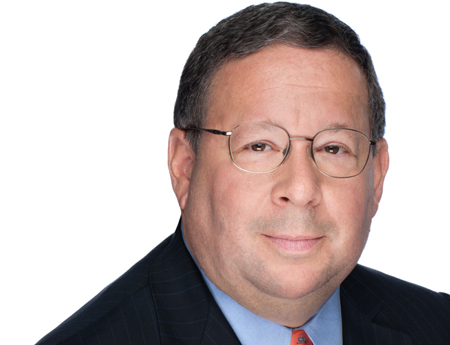Comcast: Keep Peering Out of Net Neutrality Debate

The smarter way to stay on top of broadcasting and cable industry. Sign up below
You are now subscribed
Your newsletter sign-up was successful
In its comments on the FCC's proposed network neutrality rules, Comcast said Monday that it supported new rules, but they should not apply to exchanges of Internet traffic (like paid peering deals with Netflix).
Comcast said it supported new rules based on Sec. 706 authority, was strongly opposed to reclassifying the rules under Title II, and again reiterated its support for the FCC's tentative conclusion that peering was beyond the scope of the current rulemaking.
"Comcast is committed to maintaining an open Internet and we support the FCC adopting new, strong Open Internet rules under section 706 of the Telecommunications Act," blogged Comcast executive VP David Cohen (pictured). "Comcast doesn’t prioritize Internet traffic or have paid fast lanes, and we have no plans to do so. We believe legally enforceable rules should continue to include strong transparency, no blocking, and anti-discrimination provisions."
As for Title II, the proposal to reclassify Internet access under some common carrier regs? “Importantly, we do not support reclassification of broadband as a telecommunications service under Title II,” Cohen said. “While some parties mistakenly conflate their advocacy for 'net neutrality' with Title II, our position on reclassification is not at all inconsistent with our support of strong open Internet rules. Rather, we oppose reclassification because it would harm future innovation and investment in broadband and because reclassification is not necessary to put in place strong and enforceable Open Internet protections.”
FCC chairman Tom Wheeler has said that he sees peering as a separate issue, and one that he has concerns with. But Netflix and others have been pushing to apply nondiscrimination to that traffic, not just the nondiscriminatory access to content by ISP customers.
Netflix has complained that it was essentially forced into the paid peering deals and that the FCC should consider interconnection a network neutrality issue. ISPs say the deals are commonplace, most still involve no payments, and when they do it is because the relationship is too one-sided. The term "peering" comes from the fact that most traffic exchangers were peers in the sense of exchanging about the same amount of traffic.
"The competitive marketplace has successfully governed Internet traffic exchange since the inception of the Internet, and there is no reason to reverse course now. Wading into traffic exchange issues now would only upend a successful, longstanding, competitive marketplace and jeopardize the current widespread support for the FCC’s Open Internet proposals."
The smarter way to stay on top of broadcasting and cable industry. Sign up below
Comcast supported the FCC's compromise Open Internet order in 2010, but arguably has even more reason for its general application this time around, so long as it is essentially restoring that 2010 order under a new legal defense. That is because it alone has been subject to those rules as a condition of its deal to merge with NBCU. It is also looking to convince the FCC that there are no broadband concentration or power issues associated with its effort to merge with another top ISP, Time Warner Cable.
Sept. 10 is the deadline for comment on FCC chairman Tom Wheeler's proposed new rules. It is not clear when final rules will be ready for vote on. Wheeler told B&C/Multi last week he was not going to tie himself to a certain date, saying: "we’ll let the decision set its own timing. I don’t want to [say] 'it’s got to be done by Christmas' or that sort of thing."
Contributing editor John Eggerton has been an editor and/or writer on media regulation, legislation and policy for over four decades, including covering the FCC, FTC, Congress, the major media trade associations, and the federal courts. In addition to Multichannel News and Broadcasting + Cable, his work has appeared in Radio World, TV Technology, TV Fax, This Week in Consumer Electronics, Variety and the Encyclopedia Britannica.

